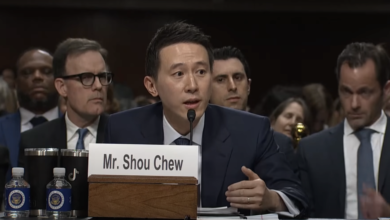This article was first published by March Forward! The author is a former Marine Corps infantryman who served in Iraq.
Between
the rising civilian unemployment numbers, the heightened costs for
education and an economic recession that has no end in sight, young
adults have been flooding into military recruitment stations looking for
jobs, education benefits and health care. And from the minute they step
foot in the door, they are coerced, lied to and promised job skills
that “will serve you for the rest of your life” by recruiters.
Recruiters
use many tactics to persuade young adults into the military. However,
one of the most prominent forms of persuasion is the promise of a better
life with more opportunities after the military. It may be very easy
for a young adult to park their car next to a line of cars with “support
our troops” bumper stickers on them, walk into a recruiting station and
believe this lie.
However, with the recent release of the
current unemployment figures for veterans, it has become even clearer
that the idea that life gets easier after the military is a complete
fallacy. As of January 2011, the unemployment rate among Iraq and
Afghanistan veterans was 15 percent, according to the Bureau of Labor
Statistics. That is nearly double the national unemployment average of 9
percent.
The numbers show that if you served in Iraq or
Afghanistan, you are far less likely to be able to find a job than an
average civilian—so much for those valuable, life-long job skills.
The
causes for this wave of unemployment among young veterans are quite
clear: Veterans are not a government priority. While soldiers spend
hours field-stripping rifles, sleeping in holes and giving their lives
following orders, their basic education and job training is completely
disregarded.
The fact is, the vast majority of jobs in the
military do not transfer into the civilian work force. Additionally,
when our soldiers return home from the wars, their physical and mental
health take a back seat to their preparation for another deployment.
This
complete lack of care leads many veterans, especially those with
families, with no other option than to reenlist. Facing unemployment,
criminally negligent health care services provided by the VA and
absolutely no civilian job training, many veterans have no other option
than to stay in the military. Many veterans have been redeployed back to
the wars for their sixth and seventh tours. Many combat veterans have
spent more time in combat in the past eight years than with their
families.
This epidemic of unemployment could not have come at a
worse time for veterans. Homelessness, drug and alcohol abuse and
suicide rates among veterans have increased every year since the
beginning of the occupations. In the past two years more active-duty
troops lost their lives from suicide than the wars.
It is not
the unemployed Iraqi who struggles to feed his family that we should be
fighting. It is not the impoverished Afghan farmer who tries to survive
without basic necessities that we should be fighting. Veterans have been
betrayed by the millionaires who walk the halls of Congress and send us
to kill and be killed so that Wall Street can turn a profit.
Our
veterans’ greatest enemies are not found in Iraq or Afghanistan, but
right here in our capital city —the ones responsible for mounting
unemployment, rising cost of health care, climbing tuition costs, record
foreclosures and evictions, and the gutting of basic and essential
social services. They have proven that they do not care about us. We can
only rely on each other.
We can fight back
In
1932, in the midst of a deep economic crisis like the one we’re in
today, countless veterans were then, too, experiencing disproportional
rates of unemployment. And they fought back. Over 40,000 World War I
veterans and their families, known as the “Bonus Army,” marched on
Washington demanding to immediately receive the compensation, or
“bonus,” that Congress had voted in 1924 to give all WWI vets.
The
World War Adjusted Compensation Act of 1924 had awarded bonuses to the
veterans in the form of certificates they could not redeem until 1945.
The unemployed veterans knew they could not wait until 1945, and they
marched from all over the United States to Washington, D.C., to demand
the immediate cash payment of their bonuses. They refused to leave until
their demands were met and set up camp. Thousands upon thousands of
honorably discharged veterans occupied Washington, D.C., because they,
too, had been kicked to the curb by the U.S. government. They were
jobless, hungry and without a decent living for their families.
The
U.S. government smashed the veterans’ occupation with all-out violence.
Three veterans were killed, more than 50 veterans were wounded and 135
arrested for simply demanding what they had been promised. But their
heroic action ultimately led to a victory several years later as
Congress passed a bonus act over President Roosevelt’s veto. In
addition, job programs like the Civilian Conservation Corps were created
that provided the veterans with jobs. If they had sat home quietly,
nothing would have happened.
Today, we are sent to two senseless
wars that only benefit the oil giants, defense contractors and Wall
Street CEOs. We come home to a worse economic situation than when we
joined.
Like the Bonus Marchers decades ago, we will only solve
the multitude of problems we face as veterans by organizing together and
fighting back.





